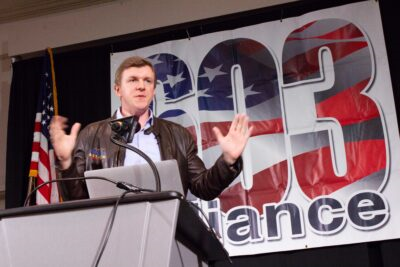On Monday, James O’Keefe announced a court win for a case started while he was still running Project Veritas. Veritas challenged Oregon’s Laws regarding recording people in public, and the 9th Circuit Court agreed with O’Keefe and Veritas.
Today, on the eve of our Country’s birthday, I received incredible news on the result of a lawsuit that I filed almost 3 years ago: Oregon State recording laws have been overturned! That’s right – I was able to change a state law that disallowed my investigative journalists to covertly record their subjects while doing our reporting.
The opinion notes that,
“We conclude that Oregon’s law is a content-based restriction that violates the First Amendment right to free speech and is therefore invalid on its face.”
“Oregon does not have a compelling interest in protecting individuals’ conversational privacy from other individuals’ protected speech in places open to the public, even if that protected speech consists of creating audio or visual recordings of other people.
New Hampshire law reads like stereo instructions to me, but the gist of it is that you need consent from both parties to record unless it is an obvious public place or recording equipment is visible and there to record others. That means you can’t claim you were recorded without consent if you are caught on a microphone at an event where recording is obviously taking place.
There is a boatload of exemptions for state and law enforcement to surveil you without permission, and there’s no requirement anywhere in public where you have no expectation of privacy. But the dual consent law exists and likely impacts the ability of journalists to get details that might be held back in the presence of a visible recording device.
This may be good or bad, depending on your opinion. It is my practice to speak as if I am always being recorded. This solves two problems. First, no open-mic gaffes because your speech sis yours and it is deliberate, and second, there is no opportunity for inconsistency in your principles.
If I’m being me in all cases instead of pretending to be something I’m not, then there is no oops moment, not that this matters in the context of New Hampshire Law. The statute is indifferent to truth or falsehood; it is the act of recording that is regulated. And in Oregon, they are going to have to revisit it, thanks to James O’Keefe.
